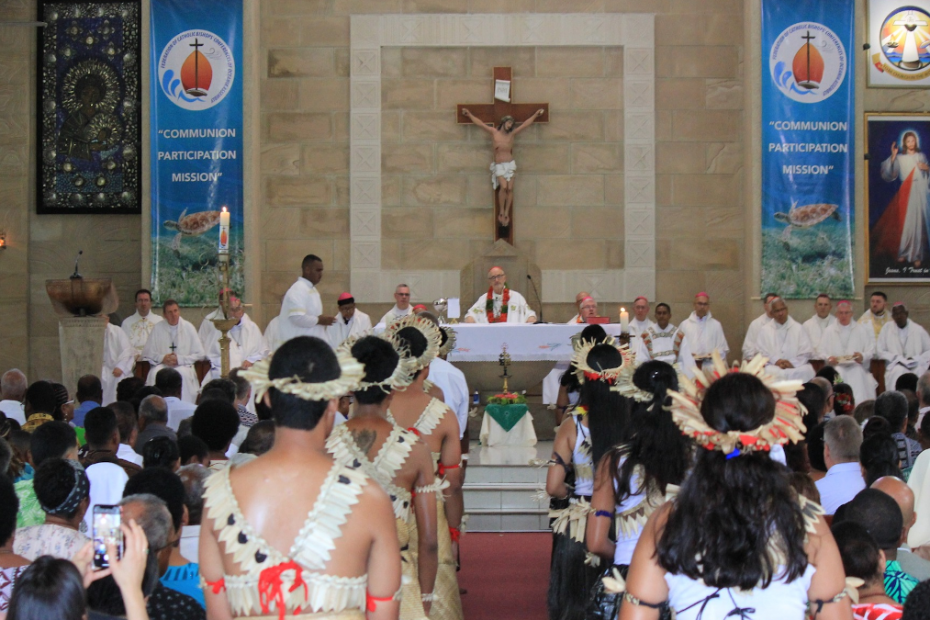The recent gathering of Bishops from the Federation of Catholic Bishops Conferences of Oceania in Suva, Fiji, offered Church leaders from around the Pacific an opportunity to read the signs of the times in our part of the world and to reflect on this in the light of the Gospel. The Bishops focussed on three priorities, viz., care of the oceans, becoming a more synodal Church and formation for mission. In their concluding statement, they said:
Oceania is a network of islands, large and small, rich in diversity. Our Oceanic identity and location provide the context in which we participate in God’s mission. In our region, the ecological crisis is an existential threat for our people and communities. It is experienced in sea level rise, the acidification of the oceans, droughts, floods and more frequent and more extreme weather events.
In the statement, they also said:
We recognise ecological conversion as an urgent mission priority not only for us, but also for the whole Church. Furthermore, we feel called to make our voices heard at the highest levels of government in our own countries, and also at the global level – in the Church and broader society – for the sake of our ocean home and its peoples.
For me, this underlines the importance of us all understanding better the implications of the call to ecological conversion. It also points to the need for building stronger and more respectful relationships across our ocean home in the Pacific so that we can more effectively take action together for the sake of our common future.
The full statement is available at:
https://suva.synod2023.org/2023/02/10/concluding-statement-from-the-catholic-bishops-of-oceania/
The Bishops also released a separate statement titled The Oceans are Interwoven with the Future of All Peoples. During the course of the Assembly the Bishops had an opportunity to visit a village where rising seas were already flooding the village cemetery and another village where extraction was having a negative impact on the local river ecosystem.
They were also deeply affected by an artistic presentation by local people which depicted the on-going impact of colonisation, people’s worries about their livelihood and the increasing pressure on some to migrate because their island homes are becoming uninhabitable as a result of rising sea levels. These Assembly experiences brought home to the Bishops the urgent need for climate action, locally and globally.
This is an opportune time for all of you who are committed to action to protect our common home from the ravages of climate change to talk with your Bishops about what more your diocese can do to promote ecological conversion locally and in collaboration with other dioceses in Australia and across the Pacific.
Cardinal Michael Czerny, Prefect of the Dicastery for Promoting Integral Human Development in the Vatican, also attended the Assembly and shared information about a new booklet and web resource co-created by the Dicastery and the Stockholm Environmental Institute.
The guide provides succinct and easy to understand explanations of urgent environmental issues along with messages from Pope Francis’ encyclical, Laudato Si’. It shows individuals and communities multiple ways in which they can take action to respond to these environmental challenges. A range of topics are explored including climate change, biodiversity, water, air pollution, sustainable consumption and links between social justice and sustainability.
This new resource is a valuable addition to the rich guidance available to parishes, schools, dioceses and households through the Dicastery’s hub, the Laudato Si’ Action Platform which you can find at:
https://www.laudatosiactionplatform.org/
The electronic version of the booklet may be found at:
and
You can also enquire about ordering printed copies of the booklet from the Dicastery by e-mailing Michele Robibaro at m.robibaro@humandevelopment.va
Peter Arndt
Director
Office for Justice, Ecology and Peace
